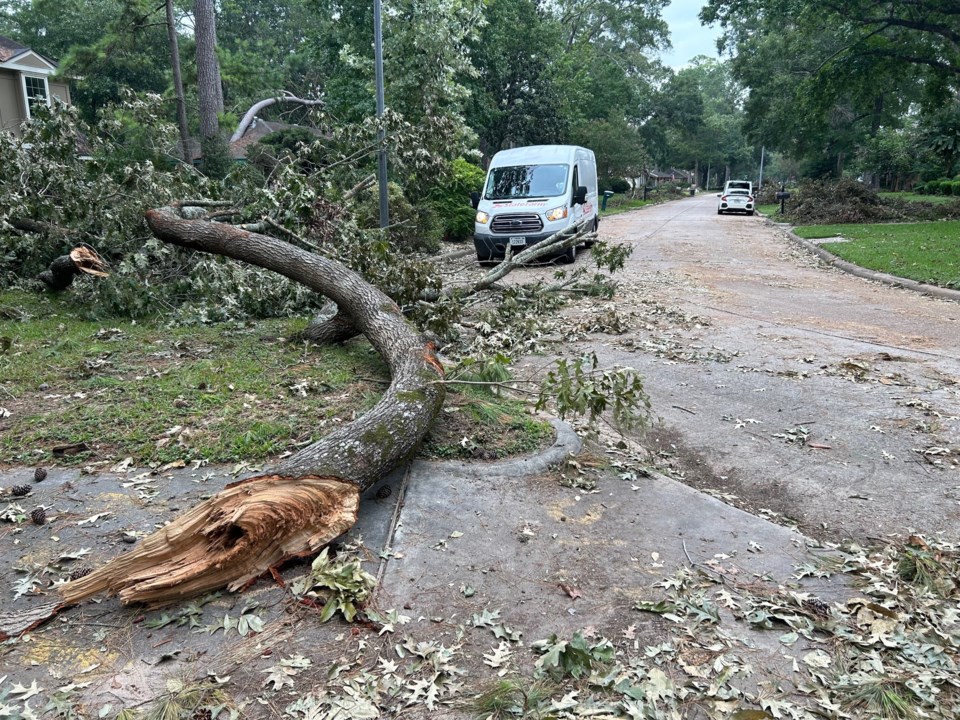While blowing devastating wind gusts that pummeled hundreds of homes in St. Vincent and the Grenadines in July 2024, Hurricane Beryl was a rude reminder of how climate change has menacingly surrounded Caribbean nations. For many people, this was not a usual storm but a sign of what will come in the future as global warming progresses.
Brooklyn heaved with anticipation when the hurricane closed in on the doorstep of the Caribbean. Marie Santiago (alias), a hardworking dental hygienist, waited on word from her brother Jose Santiago (alias), who was in the Grenadines confronting Beryl. She could not reach him for more than a day, and her heart was burdened with grief. When communication finally resumed, reality hit hard: Jose’s home was destroyed by floods, evidence of climate change that we keep talking about but rarely take action on. This story is one of many similar stories that communities throughout the Caribbean can tell after experiencing the effects of powerful storms.
Hurricane Beryl’s devastation highlighted an urgent truth: Our health systems are grossly ill-equipped to deal with the consequences of climate change. About three health facilities ceased to exist in 2024 out of 49 health facilities in St. Vincent, while many of them were significantly affected by the impacts of the storm and its aftermath. Stolen or damaged refrigerators and spoiled vaccines affected essential healthcare services, especially in the southern Grenadines. The island’s free water was withheld when rainwater gathering structures were flooded, and waterborne infections persisted following storms.
The World Health Organization (WHO) has chosen to capture the connection between climate change and health risks as a disturbing reality. The conditions for a hurricane like Beryl are more frequent and intense during warmer temperatures as the hurricanes feed off heat from the warmer seas. Recent research sources have supported theories stating that such hurricane enhancements, including Beryl, were brought about by global warming. Should we stand idly, the storms to come will be even stronger, and Caribbean communities will continue to have less access to proper health care.
Resilience makes Caribbean people stand tall, but it must be matched by action from our governments and international organizations. There was a rise in humanitarianism to support the affected communities, and such a response has become a systematic approach to climate change adaptation and control. However, we need additional measures that safeguard vulnerable people and provide fair healthcare and other resources before the next storm because what we have is inadequate.
We stand at a crossroads. In several ways, the current story about climate change has to change from being an impersonal event to an event that kills people. Let us shift our focus from emissions and temperatures to lives and homes. Constituents should stop focusing on elections and instead do everything they can to rebuild the hundreds of thousands of lives that have been affected by climate change and on how to prevent future disasters.
According to Dr. Karen Polson of the Pan American Health Organization, we need research to prove that climate-resilient health systems deserve additional funding. In my role as a public health worker, I appeal to Caribbean and Brooklyn leaders to be the voice of change. Perhaps now we can demand climate-ready infrastructure, funding for services that address mental health after trauma and programs that prioritize a healthier nation. Hurricane Beryl has highlighted the weaknesses in our emergency management systems; it is our responsibility to fortify them before the next storm hits.
The Satiagos' story is what we are fighting for and against climate change alike. The storm is over, but the battle for health equity and resilience continues. We should remember from this destruction that now is the moment to act. Join us to create a healthier, safer Caribbean where hurricane stories become success stories.
As we stand burnt, instead of getting up as mere survivors, let us stand up for our tomorrow.
Nadia Boytsova, a Brooklyn resident, is a student obtaining her Masters in Public Health at SUNY Downstate Health Sciences University.




